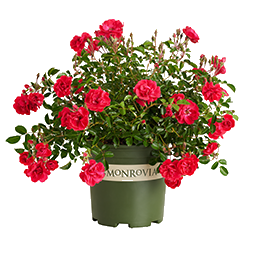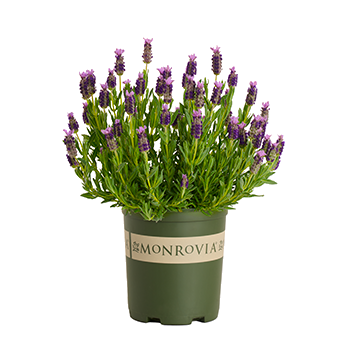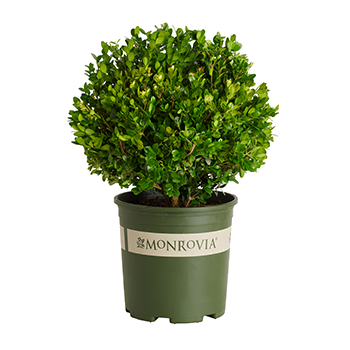Compact, productive, and hardy berry varieties (like Superlicious™ Blackberries and Bountiful Blue® Blueberries) are making it easier to grow your favorite sweet summer snack in containers. If you've been enjoying your potted berries all summer long, or recently planted a new container with them, it might be time to start preparing them for the upcoming chill of winter.
Here’s some advice on how to keep your berries happy this winter, and ensure a bountiful harvest next year.
Winter Care for Berries in Containers in Zones 7-10
5 Tips For Preparing Your Potted Berries for Winter in Zones 7-10
- Do not fertilize again until early spring.
- If winter rains don’t do the job, keep watering so that soil stay evenly moist. Do not allow your plants to dry out.
- If you have heavy rains do not allow water to pool in saucers underneath planters. Watch and drain as needed.
- A thin layer of compost (about 1 in.) applied now to the surface of the soil will break down over winter feeding microbes in the existing soil.
- Any pruning for shape or to remove damaged canes should wait until early spring. Note that many berries fruit on two-year-old canes, so pruned branches may wait a year to fruit. This is normal.
Winter Care for Berries in Containers in Zones 4-7
Once the temperatures cool and frosty nights are common, your potted berries will have lost their leaves and look branchy and bare. This is normal. In areas where temperatures regularly dip below freezing, plants will need some extra care to protect their roots through the winter. Taking some extra care now will help your plants rebound with vim and vigor come spring.
6 Tips for Preparing Your Potted Berries for Winter
- A thin layer of compost (about 1 in.) applied now to the surface of the soil will break down over winter feeding microbes in the existing soil. Do not fertilize as we don’t want to encourage leafing out during warm spells.
- Any pruning for shape or to remove damaged canes should wait until early spring. (Note that many berries fruit on two-year-old canes, so pruned branches may wait a year to fruit. This is normal.)
- Insulate pots by wrapping them in a cylinder of chicken wire. Then stuff the space in between with fall leaves or straw. (You’ll remove the insulation in the spring after the threat of prolonged cold weather has passed.)
- Another way to protect roots from freezing is to sink the pots up to their rim in a compost pile. Alternatively, try a trash can filled with mulched leaves. In spring, lift pots out, and place them where desired.
- You can also overwinter containerized berry plants by storing them in an unheated attached garage or cold cellar. Water sparingly, and when the weather warms, move them back outside.
- If it doesn't get too cold where you live, you can try moving the pots to a protected area. (For instance, in Zones 6 and 7.) Try right up against the house.
Spring Care for Your Potted Berries
No matter your zone, when the weather warms reliably, give plants a thorough watering, and then feed them with a balanced, extended-release, or organic fertilizer.
It'll also be time to prune your plants. Remove dead or damaged branches and thin out overcrowded growth to promote better air circulation and sunlight penetration. Pruning encourages new growth and improves overall plant health.
Then, re-apply a layer of organic mulch, such as straw or wood chips, around the base of the plants.
Get more details about taking care of your berries in spring and summer here:
Best Berries for Containers
Bountiful Blue®
Blueberry
An award-winning variety with the bluest of foliage! Pink-blushed flowers produce a big crop of large, sweet, juicy berries on a compact, mounded shrub. Perfect for hedges or planting in large tubs. Self-fertile, though planting with another variety may increase yields. Needs only 150-200 winter chill hours. Full sun. Up to 4' tall and wide. Zones 6-10.
Seascape
Strawberry
A cross between two popular varieties, Seascape is highly productive over a long season, yielding large, delicious berries with excellent flavor. This ever-bearing strawberry has good disease resistance and produces well in a wide range of climates. Full sun. Up to 12" tall, spreading to 24" wide. Zones 4-9.
Superlicious™
Blackberry
A thornless dwarf blackberry that presents a fireworks-like display of large, juicy berries in the summer! Its compact habit makes it perfect for patio pots. In most regions, this blackberry will produce twice in one season. Produces on second-year canes. Full sun. Up to 4' tall and wide. Zones 4-9.
Learn More About Growing and Caring for Edible Plants
- Check out the "Edibles" section of the blog
- Your Guide to Growing Delicious Strawberries
- Learn how to plant a strawberry hanging basket in this video
- Edible Landscape Design: Lessons from an Expert
- Blueberry Care Guide
- Ultimate Guide to Growing Berries
- Plant a Berry Garden for Winter Birds
- Top 10 Drought-Tolerant Edible Plants
- 5 Easy Steps for Growing Grapes
- How to Grow Fig Trees
- Keep Strawberries Fruiting in Late Summer
- Grow a Grill Garden










Please login to comment.
Don't have an account?
Sign Up for free